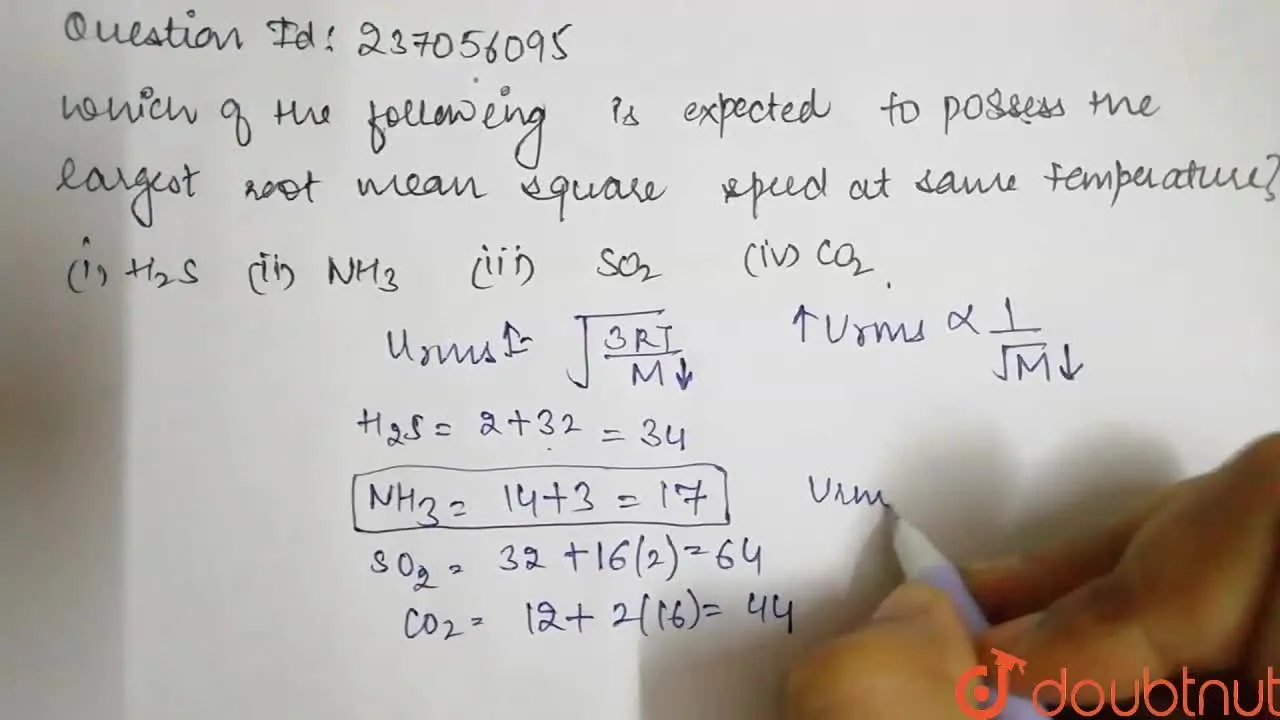Which of the following is expected to possess the largest root mean square speed at the same temperature?
H2S
NH3
SO2
CO2
The correct Answer is:B
urms=√3RTMo Since Mo of NH3 is the least among the given options. urms is the most.
Similar Questions
The root mean square speed of oxygen at 27^(@)C is 760 cm s^(-1) . The root mean square speed of hydrogen at the same temperature will be :
03:55View Solutionनिम्नलिखित में से किसका वर्ग माध्य मूल वेग, समान ताप पर अधिकतम होगा
02:46View SolutionThe root mean square speed of molecules of ideal gases at the same temperature are
02:06View SolutionThe root mean square speed of the molecules of an enclosed gas is 'v'. What will be the root mean square speed if the pressure is doubled, the temperature remaining the same?
01:36View SolutionWhich of the following is expected to possess the largest root mean square speed at the same temperature?
03:07View SolutionWhich of the following has maximum root mean square velocity at the same temperature ?
03:06View SolutionWhich of the following has maximum root mean square velocity at the same temperature?
View Solution


